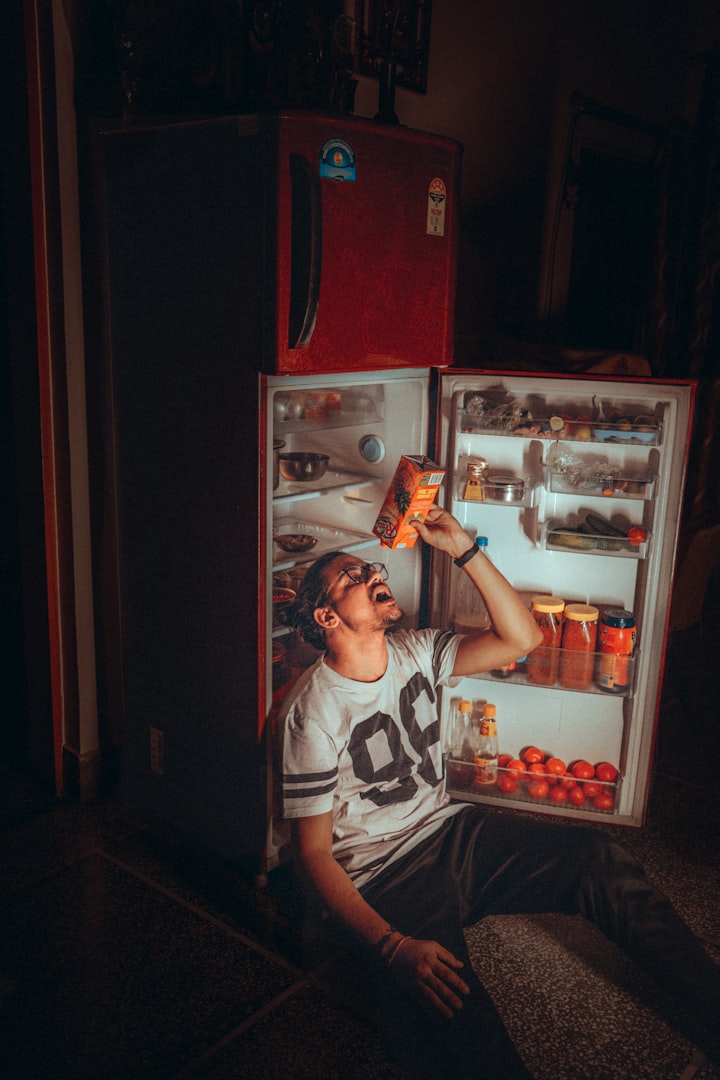Eat Well, Sleep Well & Live Well
7 Eating Habits That Can Affect Your Sleep

The trick to a balanced diet is to eat the appropriate number of calories for your level of activity, so that you balance the energy you gain with the energy you expend.
If you consume more calories than your body needs, you can gain weight because the energy you do not use is retained as fat. You will lose weight if you eat and drink too little.
You can also consume a variety of foods to ensure a well-balanced diet and that your body receives all of the nutrients it needs.
Here are the 7 tips I had written to help you Eat well, Sleep well & Live well
1. Eating Enormous Meals
Large meals high in carbohydrates can have a similar effect on blood sugar. Eating heavy meals close to bedtime interferes with the body's process of winding down for sleep.
If you go and eat a huge meal before bed, it rouses your digestive system which will be sluggish and not all that efficient. This can mean you experience a few uncomfortable symptoms such as bloating, constipation and acid reflux.
2. Spicy Foods
Eating spicy foods right before bed can cause indigestion and discomfort, making getting shut-eye all but impossible. Research also suggests that capsaicin, a compound found in spicy foods, may increase body temperature, thereby interfering with sleep.
3. Greasy Foods
Aside from increasing your chance of heart diseases,obesity and cancer, filling-up on greasy, fried foods,also makes it harder to sleep at night.
Devouring high fat nourishments might modify levels of orexin, a neurotransmitter involved in wakefulness and sleep.
In fact, one 2016 study found that eating high amounts of saturated fat was associated with less restorative sleep and more sleep arousals throughout the night.
Skip the fried food and junk that contains next to no nutritional value and load up on healthy fats instead. Coconut oil, chia seeds and avocados are a few nutrient-rich options that can fit seamlessly into a well-rounded, sleep-promoting diet.
4. High-Sugar Foods
It’s no secret that indulging in sweets and sugary treats can negatively impact your health, starting with your waistline. But did you know that they may also impact your ability to get a good night’s sleep?
Sweets like candy, chocolates and cookies cause spikes and crashes in blood sugar levels and energy.
Rather than filling up on purge carbs, decide on whole grains and fiber-rich fruits and veggies for a healthy bedtime snack.
5. Alcohol
Alcohol has sedative effects that can induce feelings of relaxation and sleepiness but the consumption of alcohol especially in excess has been linked to poor sleep quality and duration. People with alcohol use disorders commonly experience insomnia symptoms.
Alcohol should not be used as a sleep aid, and regular use of alcohol as a sleep aid may result in alcohol dependence.
6. Habitual Caffeine Consumption
The most obvious effect of the stimulant is that it can make it hard for you to fall asleep. One study also found that caffeine can delay the timing of your body clock. These effects will reduce your total sleep time.
Moderation is definitely the key to kicking your sleep deprivation that’s caused by drinking too much caffeine. That morning cup of coffee is fine, so long as you’re not having trouble sleeping at night. Many people can manage moderate caffeine consumption early in the day without compromising sleep. A general guideline is to curtail caffeine consumption by 2 PM.
7. Too Much Fluid Intake
In case somebody feels dehydrated at night or is at risk of dehydration, then they should drink some water. Beyond this, there are few particular benefits of drinking water before bed.
However, drinking water before going to bed can increment a person’s chance of nocturia.
Nocturia describes needing to wake up at night in order to urinate. It is a symptom of other conditions, not a disease itself.
This combination reduces the need for people to urinate during the night and helps them sleep uninterrupted. Repeatedly getting up can reduce both the duration and quality of sleep.
Improve Your Eating Habits And Improve many other aspects of your health as well.
About the Creator
lovely tolentino
Hi ! My name is Lovely, I am 23 yrs old, Avid reader.
I love to inspire & help other people through my writing.
This journey & passion is uniquely my happiness, One read makes difference. Thank you!
You can follow me on Instagram
@xx_lovelyvien






Comments
There are no comments for this story
Be the first to respond and start the conversation.